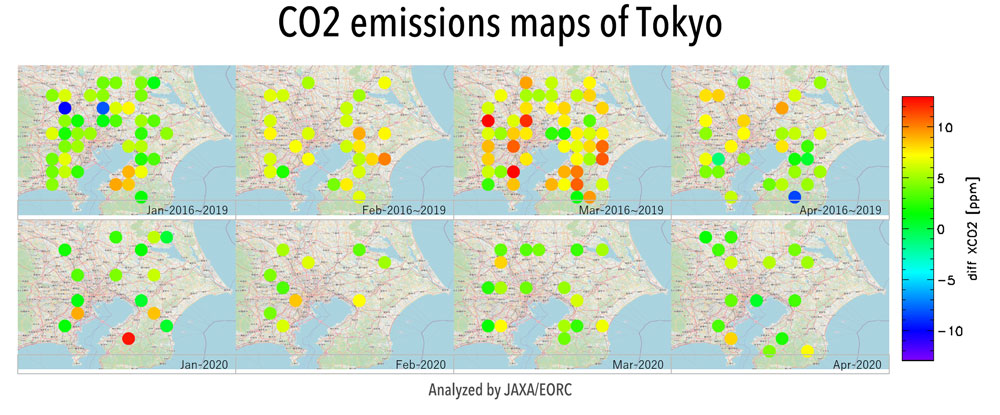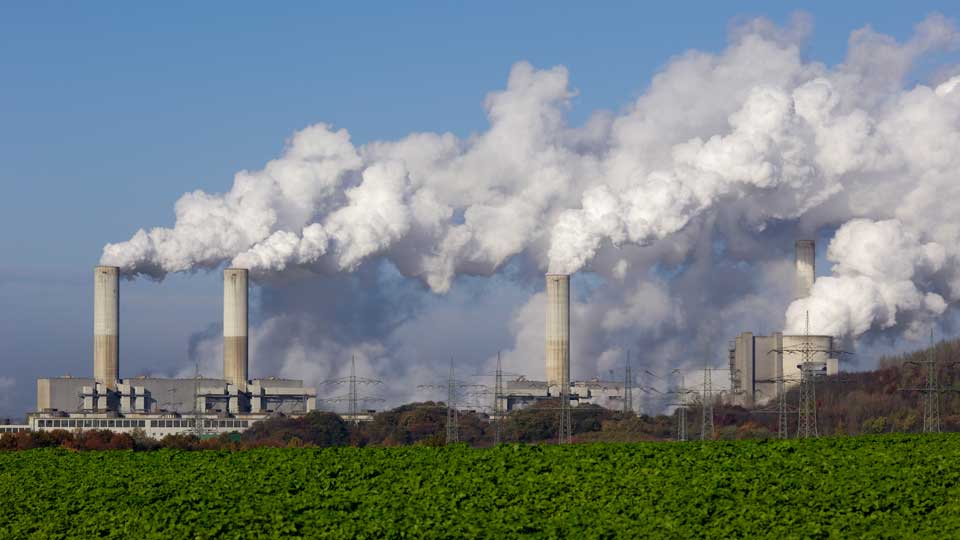CO2 emissions levels plummet
The International Energy Agency, which tracks energy consumption around the world, expects energy-related carbon emissions this year to be down about 8%, marking the biggest year-on-year reduction on record. This would bring global emissions in line with levels from 10 years ago.
According to the Japan Aerospace Exploration Agency, or JAXA, which monitors carbon dioxide levels in seven major cities across the country, CO2 concentration levels in the Greater Tokyo Area were lower this March and April than in the same months last year. And other cities around the world, such as New York and Shanghai, have experienced similar trends. JAXA says the declines are the result of lockdown measures, as CO2 levels were similar to previous years in January and February, but went down in March and April when restrictions were put in place.

But experts say these trends are nothing to get excited about.
"We can all agree that the level of emissions this year has dropped," says Emori Seita, Deputy Director of the Center for Global Environmental Research. "However, we also need to acknowledge that it's just temporary and a single year drop would have no measurable effect on the world's carbon concentration and warming. It will be easily erased unless proper measures are put in place across the world."
But Emori also says he doesn't want people to be discouraged by the fact that this drop in emissions was only possible because of widespread disruptions to daily life.
"Some people might think that climate action isn't worth all the sacrifices they made during lockdowns," he says. "But economic restrictions aren't the only way toward a cleaner world. We can achieve our goals through policies and by shifting from a dependence on fossil fuels to renewable energy."

Digital transformation of society
CO2 levels are already starting to rise again as economies around the world resume activity. Some experts fear the economic recovery policies put in place by governments will exacerbate the problem, and say that countries should instead be taking this chance to implement fundamental changes toward a more environmentally sustainable society.
Sugiyama Taishi, Research Director at the Canon Institute for Global Studies, says the Japanese government needs to invest in technology that makes it easier for people to work or conduct other activities remotely.
"One of the most significant changes the pandemic has brought on society is that it has forced us to put digitization into practice," he says. "We've been talking about remote work for ages but it hasn't been popular among Japanese companies. The pandemic has proved that working, taking classes, even seeing the doctor from home, can work in our society. The decrease in daily traffic attributed to remote work has an immense impact on energy efficiency. If we continue in this way, we can reduce our carbon footprint while also boosting the economy. This is what the government should be pouring money into, even in the initial phase of economic recovery."

Transformative change
2020 was slated to be a landmark year in climate action. All countries that signed the Paris Agreement at the COP21 climate conference five years ago are expected to update their commitments and set new targets for curbing greenhouse gas emissions. But the pandemic forced the United Nations to push its COP26 climate talks back a year, and without the international pressure a conference brings, some countries have felt free to settle on decidedly unimpressive goals.
Japan, the world's fifth-largest emitter, said in March it would stick to its plan to cut emissions by only 26% by fiscal 2030 from 2013 levels. That figure drew swift condemnation from climate activists.
And there are indications that the government is already planning to step up its commitments.
In its annual white paper, Japan’s Environment Ministry finally acknowledged that weather-related disasters in the country represent a “climate crisis.” The report also says Japan will switch to renewables as its main energy source, reducing dependence on thermal energy as much as possible. And the government announced on July 3rd that it plans to set up an expert panel to look at reducing the country’s use of coal. The aim would be to cut power generation at outdated coal-fired plants by about 90% over the next decade.
"The extra year until COP26 must be used to come up with adequate measures," says Takeuchi Kazuhiko, President of the Institute for Global Environmental Strategies. "Japan needs to finally make the transformative change that it has resisted for so long. The coronavirus has revealed how fragile our society is, and we must take advantage of this crisis as an opportunity to build toward a sustainable society. It is high time we mapped out an innovative and detailed strategy. We cannot go back to the way we were before the pandemic."

